Ancient Religions of Aegean Turkey
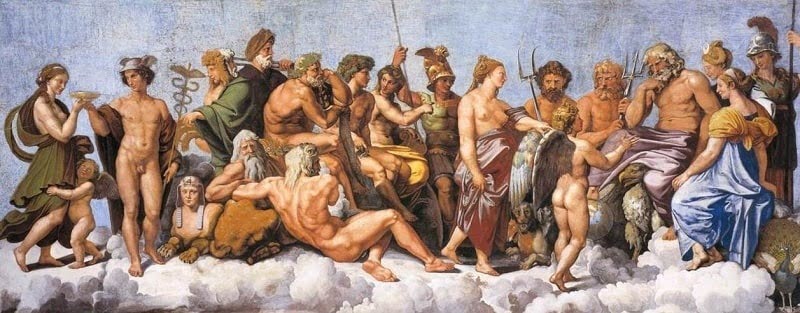
Western Mythology Begins With Homer
Ozdere, and Izmir
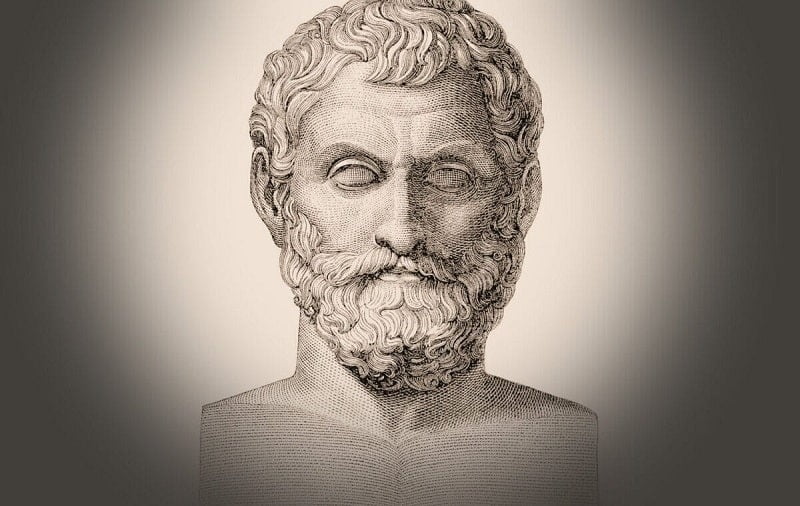
The great Homer, the author of the Iliad and Odyssey, was born in what was then known as Izmir (ancient Smyrna). Son of Meles, or Melesigenes, was a common name for him (Meles refers to the River Meles, or more appropriately, Meles Brook). His epic poetry cave was said to be located close to where the brook that runs through Izmir begins. The Homereion, a temple to poetry, was located on the banks of this river. The fact that he is one of the world’s best-known poets belies the fact that we know next to nothing about him. And yet, despite being a master storyteller, he refuses to talk about his past. One can retrace nearly the entirety of the Iliad in Troy, while the Odyssey can be traced along the Aegean coast of Turkey.
A coastal town called Ozdere in the province of Izmir is where you can find the ruins of the ancient Sanctuary of Claros, a major oracle site.
The temple and oracle of Apollo, known in the area as Apollo Clarius, served as Claros’s spiritual epicenter. In antiquity, the oracle was on par with those of Delphi and Didyma in terms of importance. The Homeric hymns from the 7th century B.C.E. are the earliest written record of the oracle at Claros. Some academics believe that the poet Homer, who is commonly thought to have been born in the city of Colophon, wrote these 33 poems under an alias.
Revelation’s Seven Churches
Cities of Izmir, Manisa, and Denizli
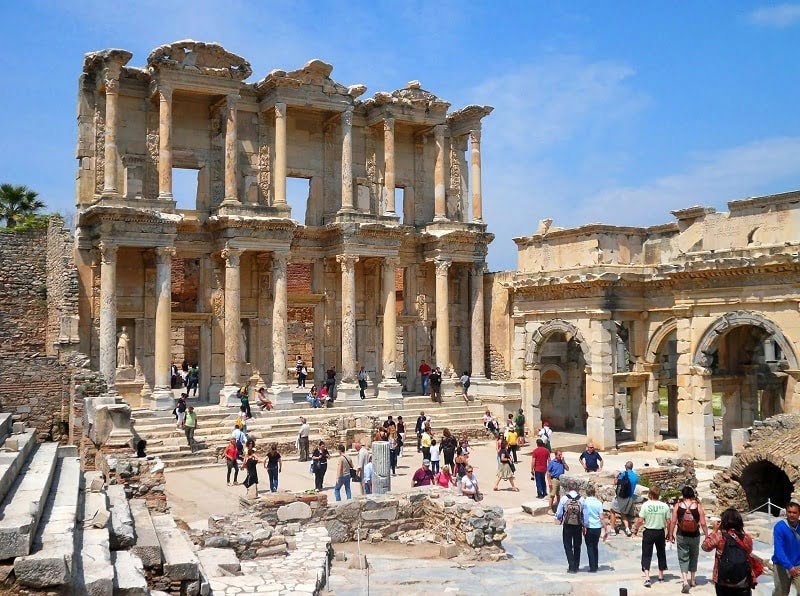
All seven letters in the Book of Revelation are written to churches in Asia Minor, or what is now Turkey. Christ’s message, as written down by St. John the Apostle, says that each letter should brag about the successes and failures of the churches it is sent to and warn each congregation that it needs to change.
Many of the first Christian communities, including the seven churches mentioned in Revelation, were located in what is now known as Asia Minor. It’s possible that Jesus chose these seven churches, in particular, to deliver his apocalyptic message because they were all situated along a major circular trade route that connected the province’s major cities and political centers.
The Aegean region of western Turkey is home to all seven of the churches mentioned in the Book of Revelation.
Ephesus (Selcuk-Efes/Izmir)
Smyrna (Izmir)
Pergamon (Bergama/Izmir)
Thyatira (Akhisar/Manisa)
Sardis (Salihli/Manisa)
Philadelphia (Alasehir/Manisa)
Laodicea (Denizli)
Ancient Anatolian Philosophers
Aydin, Herakleia, and Lake Bafa; Izmir, Miletos (Balat), and Priene (Gullubahce); and Canakkale, Ephesus (Selcuk), and Clazomenai (Urla) (Mugla).
Philosophers who are the forefathers of contemporary science and philosophy originated in Anatolia. The ancient city of Miletos in Asia Minor and the region of Ionia on the eastern coast of the Aegean Sea are among the most prominent of these origin places.
The first philosopher, Thales of Miletus, claimed he studied the natural world, not for the benefit of the gods but rather to satisfy his curiosity and satisfy his daily needs. His objective, insatiable curiosity about the natural world made him the first person to do so.
Anaximander, Anaximenes of Miletos, and Anaximander’s pupil, Anaximenes of Miletos, carried on his legacy. They made an effort to provide a rational account of the universe’s beginnings and underlying structure. The first person to describe Earth as floating in space without any foundation was Anaximander.
Heraclitus of Ephesus thought that fire was a symbol of the order of the universe because it is always changing while staying the same.
Anaxagoras, a native of Clazomenae, believed that all matter was composed of an infinite variety of unchangeable primary elements and that the mixing and separating of these elements accounted for the creation and destruction of matter. According to his theory, the cosmic mind is the ordering force behind everything in the universe (nous).
Hermias of Atarneus, a Buthynian banker and former slave of Eubulus, founded a philosophical school in Assos. Hermias brought together a group of thinkers and scientists at Assos. Among them were Aristotle and Xenocrates, two of his friends from Plato’s Academy in Athens.
Religious Visit to a Marian Statue
Selcuk-Izmir
The Basilica of St. John the Baptist; the Temple of Artemis at Ephesus; the Village of Sirince
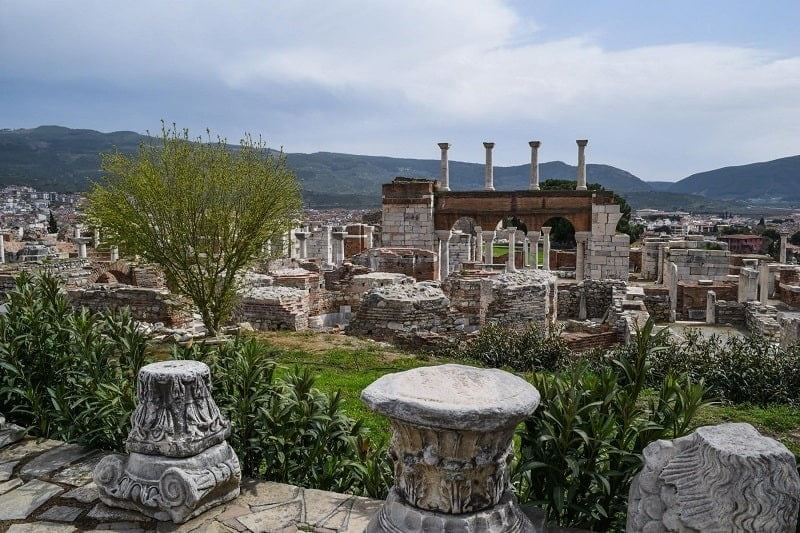
The Virgin Mary, according to the Council of Ephesos (AD 431), spent her final years in the region surrounding Ephesus. John the Apostle went all over Asia Minor from his base in Ephesus. To honor the Anatolian goddess Kybele, early travelers set out. As time went on, this deity became indistinguishable from the Greek goddess Artemis, and worshippers from all over the Mediterranean came to the great Artemision to pay their respects to the new deity known as Ephesian Artemis. Mary, the mother of Jesus, is said to have spent the final years of her life in Ephesos, where she was worshiped like that of the ancient cults of female deities. The Byzantine emperor Justinian erected a magnificent basilica on Ayasuluk Hill in the town of Selcuk, where St. John the Apostle was buried, in the sixth century.
According to the legend, Mary and St. John traveled to Ephesos and spent their final years there. Anne Catherine Emmerich had a vision that led Lazarist priests to the house, and they learned that for centuries, people in the nearby village of Sirince had been celebrating the “Dormition of the Virgin Mary” there. To this day, tourists can pay a visit to the Holy Spring and the historic Wall of Wishes, in addition to the House of the Virgin Mary (Meryem Ana Evi in Turkish).
Jewish Izmir
Location: Ikicesmelik / Kemeralti / Karatas / Izmir
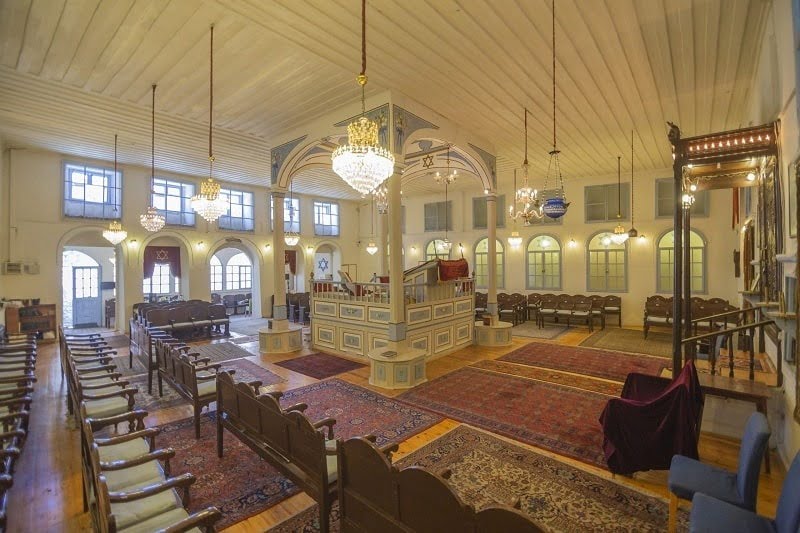
Izmir’s synagogues, which were inspired by medieval Spanish architecture, and the Sephardic practices that gave rise to them add a distinct flavor to the city’s Jewish history.
Izmir has a unique concentration of synagogues from the 16th century, all of which are examples of the same architectural style. Nearby synagogues form a remarkable example of Jewish religious architecture.
The Havra Sokagi neighborhood of Izmir is home to the eight remaining synagogues out of the original 33 that were built there over the centuries. This neighborhood is located near the Kemeralt historical market (Synagogue Street).
In the 17th and 18th centuries, Izmir’s Jewish community had more spiritual and cultural power than any other Jewish diaspora group. These synagogues are a living reminder of that time.
With the help of the city government and the Jewish community of Izmir, a global initiative known as the “Izmir Project” is restoring and rebuilding the city’s existing synagogues.
Beginning in the early 1800s, in the area between Kadifekale, Basmane, and Havra Street, the Jewish community of Ikicesmelik grew to include Karatas, Goztepe, and Karantina.
Some of the remaining cortijos (family homes) in the Ikicesmelik neighborhood, where Izmir’s Sephardic Jewish community established roots, are undergoing restoration. The poorest members of the city’s Sephardic community had traditionally lived in a type of building called a “Cortijo,” which was characterized by its central courtyard. Each family had its room that looked out onto the courtyard, and all of the families shared the common areas, including the kitchen, bathroom, and water well.
Bikur Holim, Beth Hilel, Seniora, Shalom, the Algazi Synagogues, and Beth Israel in Karatas are some of the Sephardic synagogues in Kemeralti that welcome visitors.
Tours of Aegean Turkey
Ι Luxury Discover Turkey Tour Ι Luxury Turkey Tour Package Ι
Ι Luxury Istanbul and Ephesus Tour Ι Luxury Istanbul and Bodrum Tour Ι Luxury Istanbul Ephesus Pamukkale Tour Ι Luxury Ephesus Tour from Istanbul Ι
Attractions in Agean Turkey
Ι Turkey Travel Destiations Ι Ephesus Ι
